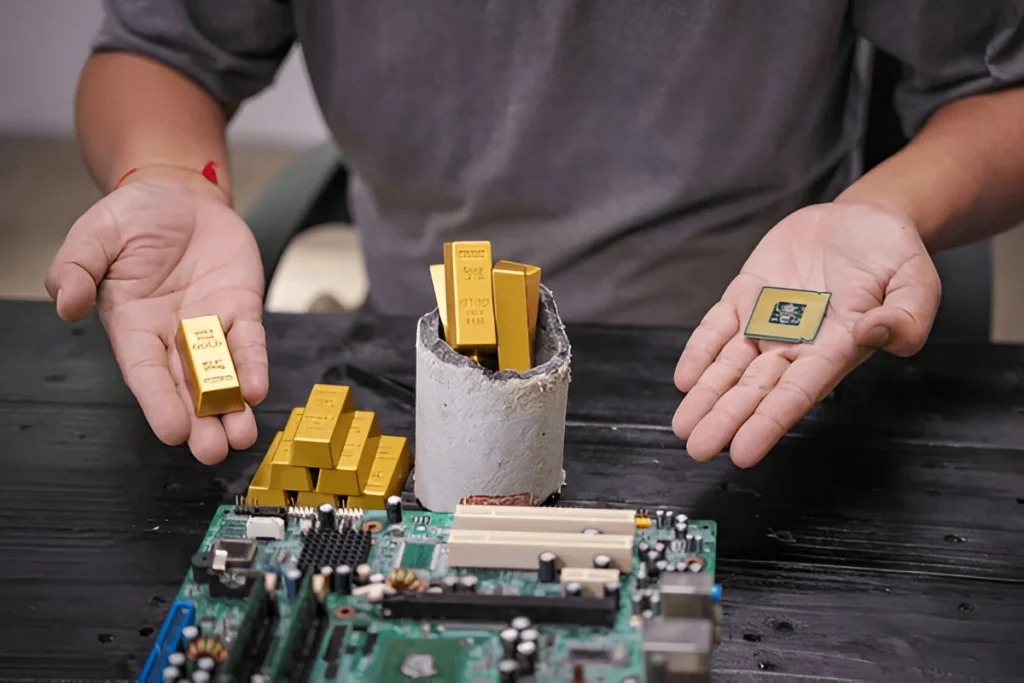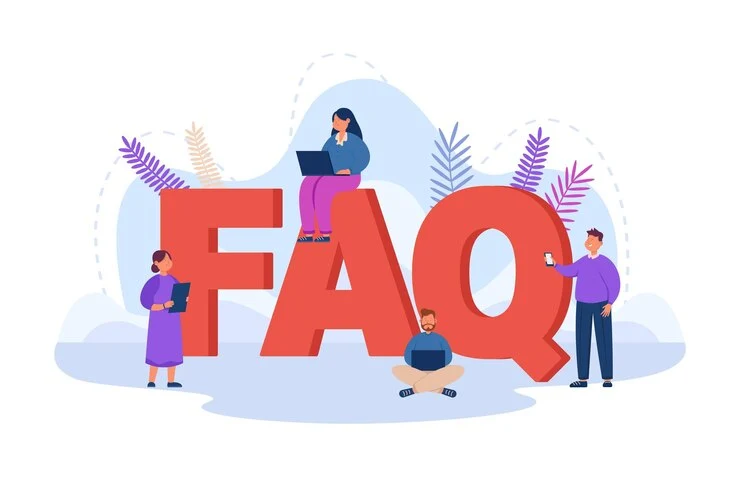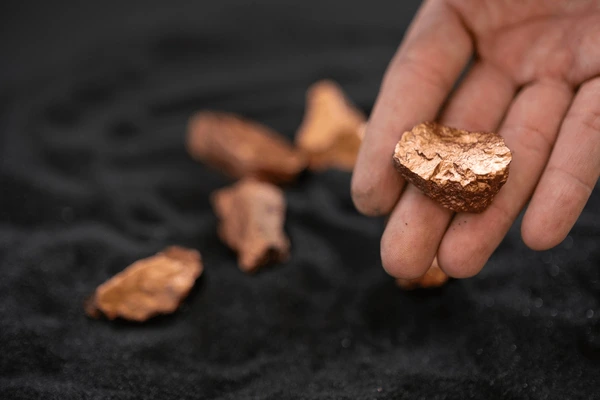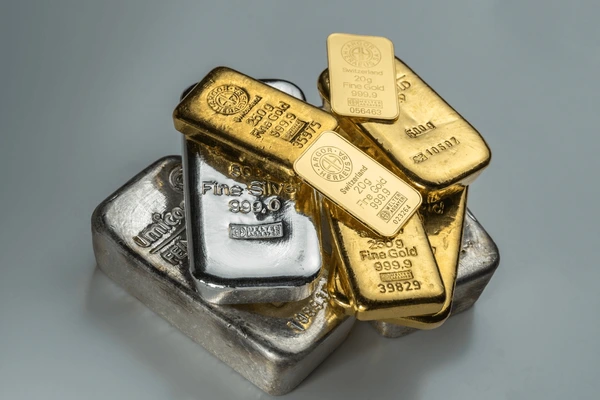Sayanava Sinha Roy
26.08.2025
How does gold recycling shape a sustainable future?
How does gold recycling shape a sustainable future? Learn how a reputed gold buyer and modern refiners promote sustainability, reduce waste, and support a greener economy.
Table of Contents
Understanding Gold Recycling in Today’s World
Gold has fascinated civilizations for centuries. From being a symbol of wealth to becoming the backbone of jewelry, electronics, and investments, its value has never diminished. But here’s the reality: natural gold is limited, and mining new reserves often comes with environmental damage. This is where gold recycling steps in as a game-changer for sustainability.
Recycling is not just about melting old jewelry. It’s about recovering gold from various sources, such as:
- Old ornaments and broken jewelry
- Industrial waste and electronic devices
- Dental scrap and medical equipment
- Bullion and coins that are no longer in circulation
By reusing gold through proper refining, industries can preserve natural resources, reduce mining impact, and promote a circular economy.

Why Gold Recycling Matters for Sustainability
Gold recycling is not just a financial concept—it is a global sustainability movement. It addresses challenges like:
- Reducing mining pressure → Less soil degradation, water usage, and deforestation.
- Lowering carbon footprint → Recycling requires far less energy compared to fresh mining.
- Preserving ecosystems → Protects biodiversity affected by harmful mining practices.
- Encouraging responsible consumption → Gives value to unused jewelry and industrial scrap.
In short, recycling supports both economic efficiency and environmental responsibility.
How does gold recycling shape a sustainable future?
The future of gold does not rely solely on discovering new mines—it lies in reusing and refining what we already have. Here’s how recycling contributes to long-term sustainability:
1. Environmental Benefits
Mining activities often release toxic chemicals like cyanide and mercury into rivers and soil. Recycling reduces these risks dramatically by minimizing the demand for fresh mining.
2. Energy Efficiency
Producing gold from mines requires intense energy usage. Recycling gold consumes nearly 90% less energy while producing the same quality of pure metal.
3. Waste Reduction
Every year, tons of electronic waste (e-waste) pile up globally. By recycling old circuit boards, connectors, and devices, precious metals like gold can be recovered instead of ending up in landfills.
4. Economic Stability
Gold recycling ensures that countries remain less dependent on volatile mining markets. By keeping resources in circulation, economies become more resilient and cost-effective.
5. Supporting a Circular Economy
Recycling helps move from a linear economy (produce–use–discard) to a circular economy (produce–use–reuse), ensuring resources don’t go to waste.

Role of Refiners in Gold Recycling
Refiners play a critical role in shaping this sustainable model. With modern technology, they ensure:
- Advanced purity testing through hallmarking and spectrometry
- Environmentally safe methods of extraction without harmful chemicals
- Fair value returns to customers bringing in scrap or unused gold
This makes refiners a crucial bridge between sustainability and economic opportunity.
How Gold Recycling Impacts Consumers
For everyday people, gold recycling is not only about eco-friendliness—it’s also about personal benefit.
- Higher returns → Old jewelry is never “waste”; recycling offers monetary value.
- Trust in authenticity → Recycled gold undergoes rigorous purity checks.
- Contribution to sustainability → Every small step, like recycling unused ornaments, reduces mining needs.
Even when you approach the Best Gold Buyer in Kolkata, the process often includes recycling as part of ensuring that gold re-enters the system responsibly.
Gold Recycling and the Global Economy
Globally, recycled gold contributes to nearly one-third of the total gold supply. Countries with advanced recycling systems are less dependent on mining imports, which strengthens their financial systems.
Moreover, as the demand for green investments and ethical sourcing grows, recycled gold is becoming more attractive in:
- Jewelry industries
- Technology manufacturing
- Medical applications
- Sustainable investment portfolios

FAQs on Gold Recycling
Q1. Is recycled gold as valuable as newly mined gold?
Yes, recycled gold maintains the same purity and value once refined. There is no difference in quality.
Q2. Can electronic waste really provide gold?
Absolutely. Devices like smartphones, laptops, and circuit boards contain small amounts of gold, which can be extracted through advanced recycling.
Q3. How does gold recycling help the environment?
It reduces the need for mining, lowers carbon emissions, and prevents toxic chemicals from harming ecosystems.
Q4. Is gold recycling cost-effective for consumers?
Yes, recycling old ornaments or scrap provides monetary returns while supporting sustainability.
Q5. How much of the world’s gold supply comes from recycling?
On average, about 25–30% of the global gold supply comes from recycling. This figure is expected to rise in the future.
A Greener Tomorrow with Gold Recycling
Gold recycling is more than just a method of reclaiming a precious resource—it is a step toward creating a more balanced relationship between human needs and environmental responsibility. By reducing the demand for destructive mining practices, recycling gold ensures that fewer natural habitats are disturbed, fewer greenhouse gases are emitted, and fewer toxic materials pollute our ecosystems. It allows society to reuse what is already available, minimizing waste while preserving the earth’s limited resources for future generations.
On a larger scale, gold recycling is shaping the foundation of a circular economy where materials do not end up as waste but are continuously brought back into productive use. From supporting sustainable industries to providing ethical alternatives for jewelers and manufacturers, the benefits are immense. As awareness grows, embracing recycling practices will not only safeguard the environment but also secure long-term economic stability. In this way, gold recycling is not just about sustainability—it is about creating a future that is fairer, cleaner, and smarter for everyone.
Popular Post



